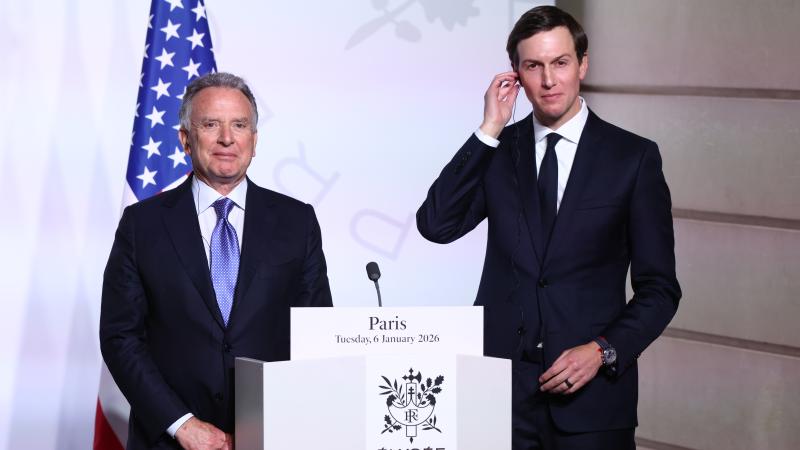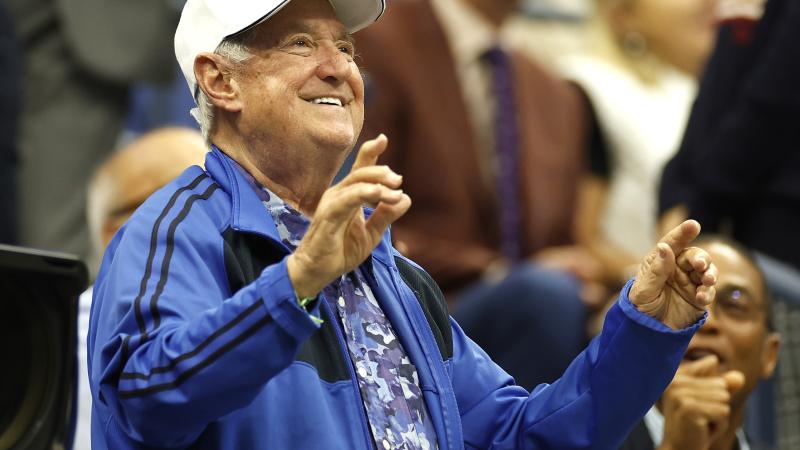Germany's upcoming election being influenced by expected figure – Trump
Establishment political parties have been doing a bad job addressing the lived experiences of the most voters, one political expert
Germany’s government collapsed this week after internal squabbling over economic policy and the future of German entitlements. Yet many analysts think that when voters go to the polls in February to elect news lawmakers, the biggest electoral issue may be the policies of Donald Trump.
Trump will have been in the White House for barely a month by the time of the German vote, and the 47th president’s early decision making will loom large in Europe’s largest economy.
After weeks of instability, the German government led by Chancellor Olaf Scholz lost a confidence vote on Dec. 16, a little more than a month after a key coalition partner pulled its support over a budget dispute, and amid growing support for the far-right and European Union-skeptic Alternative for Germany party. It was just the sixth time a German government lost such a vote since the end of World War II.
Soon after, Scholz and opposition leader Friedrich Merz released their platforms. Broadly speaking, Scholz favors protecting entitlements – leaving the retirement age unchanged and gradually raising the minimum wage – while supporting Ukraine even as he vows not to ever send German troops to the country. Merz, meanwhile, wants tax cuts, stronger curbs on mass migration, redefined goals in Ukraine, and deflation of welfare guarantees.
They’ve also spent a lot of time launching brutal verbal attacks on each other.
Merz called Scholz “a European embarrassment” who failed to deliver on promises he made. “Why haven’t you done the things you mentioned?” the 69-year-old conservative said. “Were you traveling in another galaxy? Did you travel to another planet?”
For his part, Scholz was dismissive in his response. “That’s just Fritz, who likes to talk nonsense,” Scholz said, referring to Merz by his nickname.
Meanwhile, French President Emmanuel Macron recently named the country’s fourth prime minister in roughly a year. And Canadian Prime Minister Justin Trudeau, a peer of Scholz and Macron, is facing calls to step down after his finance minister abruptly resigned.
Daniel Hamilton, a senior fellow at the Foreign Policy Institute of the Johns Hopkins University School of Advanced International Studies, recently told U.S. News & World Report, the dynamics that returned Trump to power are similar to those in Europe and Canada.
"Which is a sense that regular voters look at their life and think that the elites just simply aren’t paying attention to their challenges. And that the establishment – right or left or center – has been doing a bad job addressing the lived experiences of the most voters. That has basically been a story of pandemic lockdowns, of inflation, of high energy prices in many countries, he said.
But many analysts say that by the time Germany’s Election Day rolls around in late February, the early policy announcements from the Trump White House may have a bigger impact on the German vote than any of the name calling or policy differences.
Trump has vowed, for example, to levy tariffs of at least 10% on imports to the U.S. from the European Union. If he follows through on that it would be a huge blow to the already wobbly German economy, which is Europe’s largest exporter and where the U.S. has surpassed China as the country’s largest trading partner.
Changes in Washington’s policy toward Ukraine are also likely to echo strongly in Germany, which up to now is second only to the U.S. in terms of military and economic support for Kiev. If Trump pushes for a ceasefire or a negotiated end to Ukraine’s war with Russia as promised, that could require security guarantees that would force Scholz to change tact regarding German troops if the European Union agrees to deploy forces in order to deter future Russian aggression.
Scholz, 66, who will continue to act as Germany’s head of government as a technocrat until the election takes place, appears to recognize the influence the incoming administration in the U.S. will have. The day after his government collapsed, he announced he planned to travel to Washington for a face-to-face meeting well before any German votes were cast.
And earlier this week billionaire and incoming Trump administration adviser Elon Musk endorsed the country’s far-right Alternative for Germany (AfD) party.
“Only the AfD can save Germany," Musk posted Thursday on X.
The Facts Inside Our Reporter's Notebook
Links
- Chancellor Olaf Scholz lost a confidence vote on Dec. 16
- far-right and European Union-skeptic Alternative for Germany party
- Scholz and opposition leader Friedrich Merz released their platforms
- âWere you traveling in another galaxy? Did you travel to another planet?â
- âThatâs just Fritz, who likes to talk nonsense,â
- U.S. News & World Report
- the Trump White House may have a bigger impact on the German vote
- tariffs of at least 10& on imports to the U.S. from the European Union
- Europeâs largest exporter
- the U.S. has surpassed China as the countryâs largest trading partner.
- Germany, which up to now is second only to the U.S. in terms of military and economic support for Kiev
- could require security guarantees
- he announced he planned to travel to Washington
















